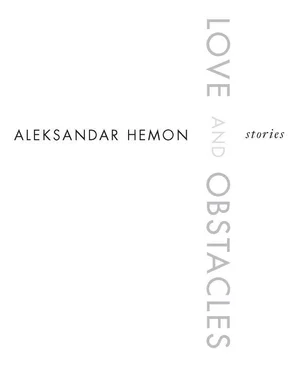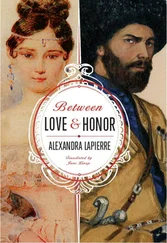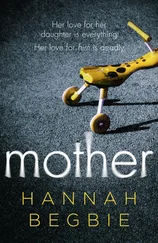Aleksandar Hemon - Love and Obstacles
Здесь есть возможность читать онлайн «Aleksandar Hemon - Love and Obstacles» весь текст электронной книги совершенно бесплатно (целиком полную версию без сокращений). В некоторых случаях можно слушать аудио, скачать через торрент в формате fb2 и присутствует краткое содержание. Издательство: Penguin USA, Inc., Жанр: Старинная литература, на английском языке. Описание произведения, (предисловие) а так же отзывы посетителей доступны на портале библиотеки ЛибКат.
- Название:Love and Obstacles
- Автор:
- Издательство:Penguin USA, Inc.
- Жанр:
- Год:неизвестен
- ISBN:нет данных
- Рейтинг книги:5 / 5. Голосов: 1
-
Избранное:Добавить в избранное
- Отзывы:
-
Ваша оценка:
- 100
- 1
- 2
- 3
- 4
- 5
Love and Obstacles: краткое содержание, описание и аннотация
Предлагаем к чтению аннотацию, описание, краткое содержание или предисловие (зависит от того, что написал сам автор книги «Love and Obstacles»). Если вы не нашли необходимую информацию о книге — напишите в комментариях, мы постараемся отыскать её.
Love and Obstacles — читать онлайн бесплатно полную книгу (весь текст) целиком
Ниже представлен текст книги, разбитый по страницам. Система сохранения места последней прочитанной страницы, позволяет с удобством читать онлайн бесплатно книгу «Love and Obstacles», без необходимости каждый раз заново искать на чём Вы остановились. Поставьте закладку, и сможете в любой момент перейти на страницу, на которой закончили чтение.
Интервал:
Закладка:
I met Azra checking out books at the school library, and I immediately liked the readerly quietude on her bespectacled face. I walked her home, slowing down whenever I had something to say, stopping when she did. She had no interest in The Catcher in the Rye ; I had not read Quo Vadis, feigned interest in The Peasant Uprising . It was clear, however, that we shared a passion for imagining lives we could live through others—a necessary ingredient of any love. Quickly we found a few books we both liked: The Time Machine, Great Expectations, And Then There Were None . That first day we talked mostly about The Dwarf from a Forgotten Country . We loved it, even though it was a children’s book, because we both could identify with a small creature lost in the big world.
We started dating, which meant that we often read to each other on a bench by the Miljacka, kissing only when we ran out of things to talk about, making out cautiously, as though letting it all go would have spent the quaint, manageable intimacy we had accrued. I was perfectly happy whispering a passage from Franny and Zooey or The Long Goodbye into her hair. So when Tata announced, upon his returning to Sarajevo on leave, that we would all spend the summer of ’83 in Africa together, I felt a strange relief: if Azra and I were apart, we could resist the torturous temptation and eschew the taint that the body inescapably inflicts upon the soul. I promised I would write to her every day, in my journal, as letters from Africa would arrive long after my return. I would record every thought, I promised, every feeling, every experience, and as soon as I came back, we would reimagine it all together, reading, as it were, the same book.
There were many things I wanted to note down that first night in Kinshasa: the west ablaze, the east impenetrably dark as we crossed the equator at sunset; the perfect recollection of the smell of her hair; a line from The Dwarf from a Forgotten Country that we had both liked so well: I have to find my way home before the fall, before the leaves cover the path. But I wrote nothing and assuaged my conscience by ascribing it to the drumming disturbance. What I didn’t write stayed in the back room of my mind, like the birthday presents I was not allowed to open until everyone had left the party.
In any case, the following morning Sestra was in the living room, looking with vague fascination at a puny man in a T-shirt depicting an angel shot in midair. Mama was sitting across the coffee table from him, listening intently to his high-pitched warbling, her legs crossed, the hem of her skirt curved over the northern hemisphere of her knee.
“Svratio komšija Spinelli,” she said. “Nemam pojma šta pria.”
“Good morning,” I said.
“Good afternoon, buddy,” Spinelli said. “The day is almost over.” He exposed a set of teeth evenly descending in size from the center toward the cheeks, like organ pipes. Sestra smiled along with him; he had both of his hands parked on his thighs, and they were calmly immobile, resting before the next task. Which was to push apart the two curls parenthesizing his forehead. The curls instantly returned to the original position, their tips symmetrically touching his eyebrows.
That was the first time I faced Spinelli, and from that moment on, his face kept changing, although all the changes are unified now in the two wrinkles between his eyes, parallel like an equation sign, and that delicate, snarly smile that always came at the end of his sentences. He said: “Sorry for the noise. A bored dog does crazy things.”
At sixteen I spent a lot of energy affecting boredom: the eye-roll; the terse, short answers to parental inquisition; the practiced blankness of expression in response to some real-life saga my parents were imparting. I had built an ironclad shield of indifference that allowed me to escape, read, and return to my cell without anyone’s noticing. But the first week in Africa, the boredom was real. I could not read; I kept scanning the same—twenty-seventh—page of Heart of Darkness and could not move beyond it. I tried to write to Azra, but found nothing to say, probably because there was so much to say.
There was certainly nothing to do. I was not allowed to go out alone into the human jungle of Kinshasa. For a while I watched TV, broadcasting Mobutu’s rants and commercials featuring cans of coconut oil floating in the blue sky of affordable happiness. Once or twice, in the middle of the day, I even felt a rare, inexplicable desire to be with my family, but Tata was at work; Sestra guarded her budding sovereignty with her Walkman turned way up; Mama was remote, interned in the kitchen, probably crying. The ceiling fan spun sluggishly, incessantly, cruelly reminding me that time here passed at the same mind-numbingly slow speed.
Tata was a great promiser, a fabulist of possibilities. Back in Sarajevo, he had projected on the vast, blank canvas of our socialist provincialism the Kinshasa that was a hive of neocolonial pleasures: exclusive clubs with pools and tennis courts; diplomatic receptions frequented by the international jet set and spies; cosmopolitan casinos and exotic lounges; safaris in the wilderness and Philippe, a native cook whom he had hired away from a Belgian by increasing his wage to a less piddling amount. That first, uneventful week these promises were drably betrayed—not even Philippe showed up for work. When Tata came home from the embassy, we had humdrum dinners Mama improvised from what she had discovered in the fridge: wizened peppers and sunken papayas, peanut paste and animal flesh that may have been goat meat.
Determined to dispel the cloud of tedium hanging over us, Tata finally put a call in to the Yugoslav ambassador and invited ourselves to his residence in Gombe, where all the important diplomats lived. The mansions there were large, the lawns were wide, majestic flowers bloomed in impeccably groomed bushes, the venerable Congo flowed serenely. His Excellency and his excellent wife were polite and devoid of any human vigor or storytelling talent. We sat in their receiving room, the adults passing around statements (“Kinshasa is strange”; “Kinshasa is really small”) like a sugar bowl. Exotic trophies were carefully positioned around the room: a piece of Antwerp bobbin lace on the wall; an ancient Mesopotamian rock on the coffee table; on the bookshelf, a picture of Their Excellencies on a snow-capped mountain. A servant with an implausible red sash brought in the drinks—Sestra and I were each given a glass of lemonade with a long silver spoon. I dared not move, and when Sestra, abruptly and inexplicably, rolled like a happy dog on the ankle-deep Afghan carpet, I feared our parents would renounce us.
As soon as we returned home, I went up to Spinelli’s place. He opened the door wearing the shot-angel shirt and shorts, his legs stilt-thin. He did not seem at all surprised to see me, nor did he ask what brought me around. “Come on in,” he said, smoking, a drink in his hand, music blasting behind him. I lit up; I had not smoked all day, and I was starved for nicotine. The smoke descended into my lungs like feathery silk, then out, thickly, through the nose; it was so beautiful I was breathless and dizzy. Spinelli was playing air drums along with the loud music, a half-burnt cigarette in the center of his mouth. “ ‘Black Dog,’ ” he said. “God damn.” In the far corner, right under the window, was a set of drums; the golden cymbals trembled under the stream from the air conditioner.
Playing imaginary drum solos and bridges, Spinelli made unsolicited confessions: He had grown up in a rough Chicago neighborhood and beat it as soon as he could; he had lived in Africa forever; he worked for the U.S. government, and could not tell me what his job was, for if he did he would have to kill me. He started each sentence sitting down, then finished standing up; the next one was accompanied by banging of the invisible drums. He never stopped moving; the space organized itself around him; he exuded so much of himself I felt absent. Only after I had, exhausted, left his place could I really think at all. And so I thought that he was a true American, a liar and a braggart, and that hanging out with him was far more stimulating than the shackles of family life or the excellent diplomats in Gombe. At some point during his streaming, restless monologue, he christened me, for no apparent reason, Blunderpuss.
Читать дальшеИнтервал:
Закладка:
Похожие книги на «Love and Obstacles»
Представляем Вашему вниманию похожие книги на «Love and Obstacles» списком для выбора. Мы отобрали схожую по названию и смыслу литературу в надежде предоставить читателям больше вариантов отыскать новые, интересные, ещё непрочитанные произведения.
Обсуждение, отзывы о книге «Love and Obstacles» и просто собственные мнения читателей. Оставьте ваши комментарии, напишите, что Вы думаете о произведении, его смысле или главных героях. Укажите что конкретно понравилось, а что нет, и почему Вы так считаете.












